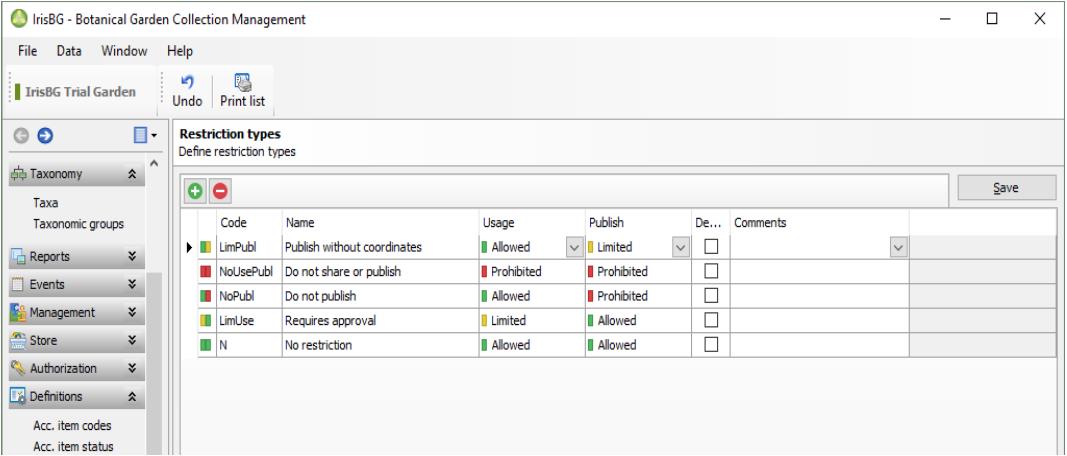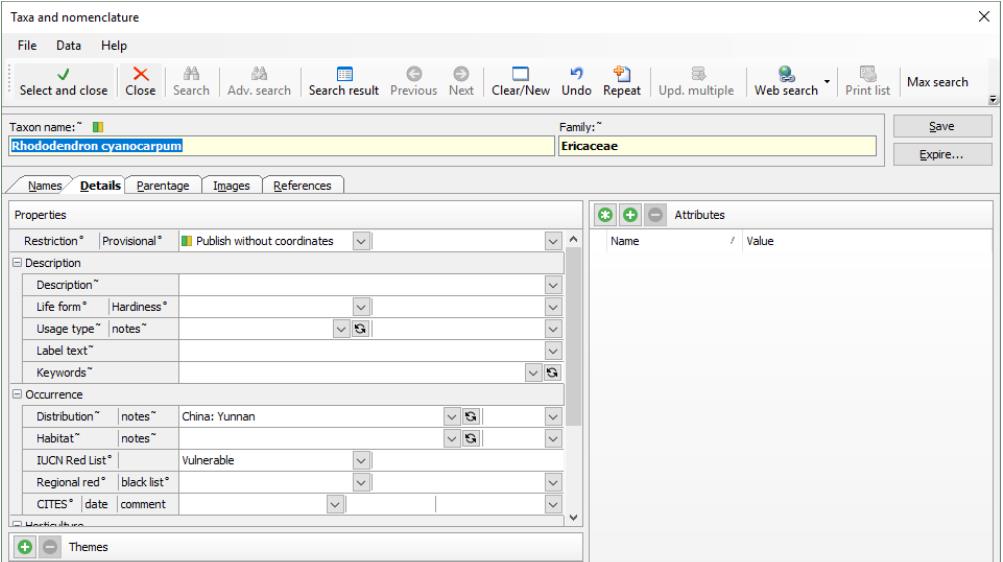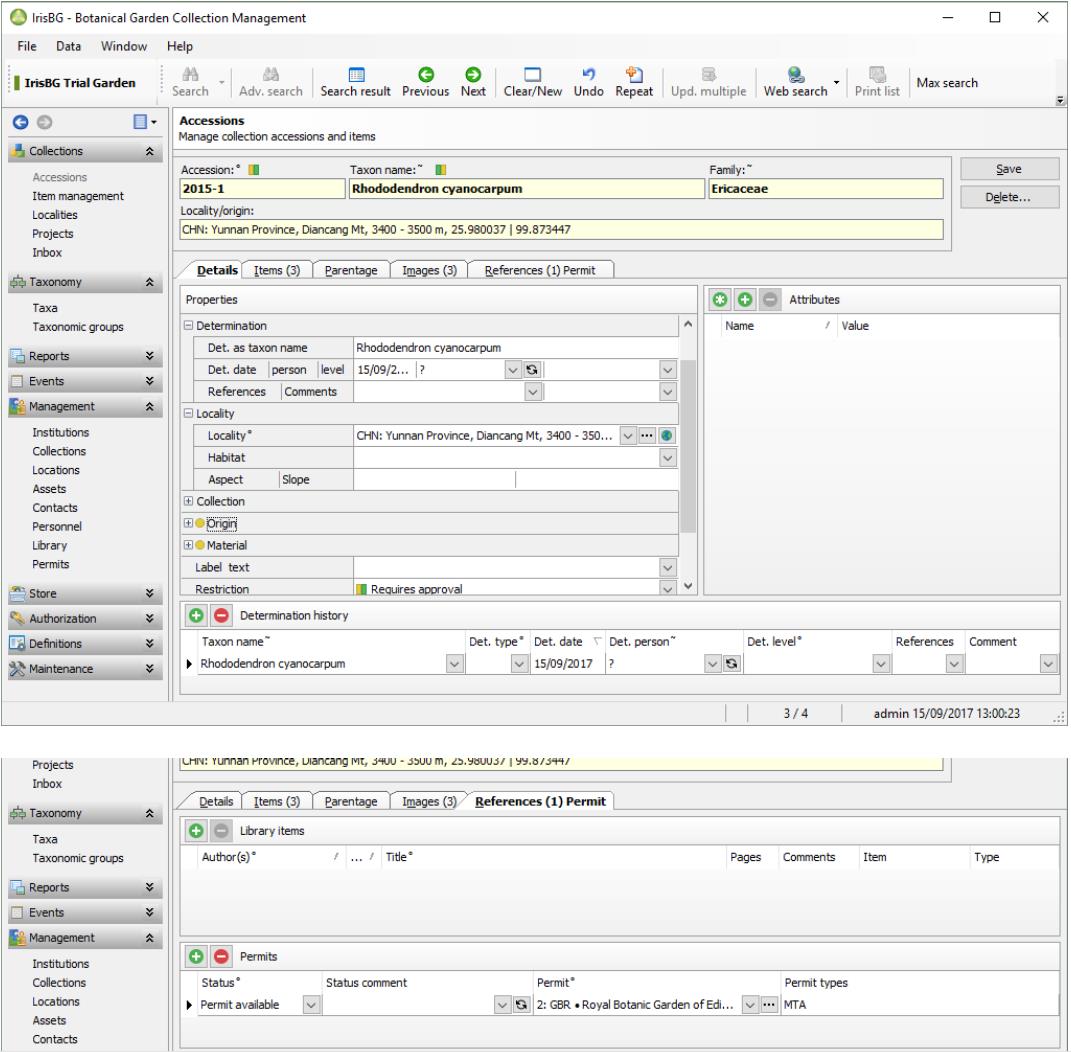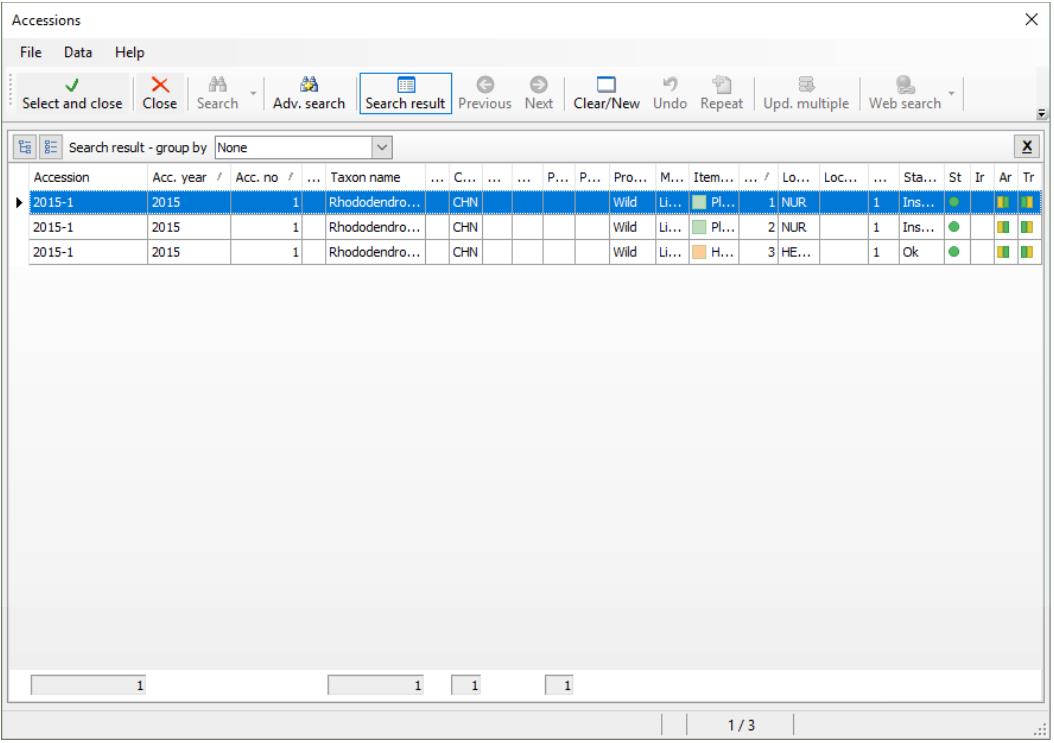This article is also published on www.bgci.org.
The key features of IrisBG that help institutions handle restricted plant material responsibly and efficiently
IrisBG is a data management system used by botanical collections such as gardens, arboreta, herbaria and private estates on five continents. It is a flexible system that can be used by large or small collections, and can run on a standalone laptop, a server with many users or can be hosted as an internet based cloud service. The standard package manages a comprehensive set of botanical collection data including plant history and related information. Optional modules include one for preserved material, which can be configured to record a wide range of material including herbarium vouchers, tissue samples and DNA extracts. Other modules allow institutions to update their data using various devices, to map the current locations and origins of plants, and to publish the plant collection online.
IrisBG includes four key features to help institutions to handle restricted plant material responsibly and efficiently:
Permits: the system allows for the recording of permits that can be associated with relevant accessions;
Restrictions: the system includes a solution to record restrictions on taxa, accessions and/or individual plants.
Exchanges: recording of exchanges enables institutions to keep a detailed record of received plant material and plant material that they have shared with others.
International Plant Exchange Network (IPEN) support: the system can generate IPEN numbers and record IPEN numbers of incoming material, enabling appropriate exchange between IPEN member gardens.
Permits, MTAs, Internationally Recognised Certificates of Compliance and other permission documents can be recorded and managed independently or be accessed via any accession associated with the permit. The system administrator can introduce new permit types if needed. A digital copy of the document can also be attached to the record. Multiple permits can be recorded/attached but a more integrated process may need to be developed if users need to handle a large volume of permits.
Restriction types in IrisBG are used to control how plant material should be restricted in terms of usage and how information is published online. Restrictions can be recorded for a given taxa, accessions or accession item (item = plant/herbarium voucher, DNA extract, etc.). If restrictions are recorded for the same taxa, accession and/or item, the more restrictive restrictions take precedence. I.e. if a taxa has usage=allowed and the accession has usage=limited, the material will be handled as usage=limited.

If an institution is dealing with valuable plant material, it may consider restricting how information is shared with the visitors. For example, an institution may use a restriction type that will ensure that location information will be hidden from the public.
When a restriction is applied to a taxon, accession, or item, the restriction is visualized at the top of the screen. For example, if an accession is recorded with “Requires approval”, the symbol “Yellow/Green” is displayed on top of the screen and in search results. In addition, restrictions on the taxa will appear.

In addition to the restriction, permits and other relevant documents will also be visible in the reference tab. The electronic version of the documents can be stored in the database and opened by clicking a button.

Material that is received or sent out is recorded as an Exchange and will be visible under the reference tab in the accession screen. The Exchange screen will prohibit users from adding restricted plant material to an exchange. When selecting plant material to be added to the exchange, any restrictions will be visualized in the restriction column. Users can produce an MTA packing slip from this screen that can include restrictions.

If a specimen is sampled for DNA or if herbarium vouchers have been made from living specimens, IrisBG can enable linkages between these specimens/samples, either directly (if the derived specimen is made and recorded in the same collection) or indirectly as an “Exchange”.
IrisBG enables the recording of “Library” records for any type of written reference (book, publication, website, etc.), which can be associated with accessions and with taxa, and in relation to plant identification.

Comments
0 comments
Please sign in to leave a comment.